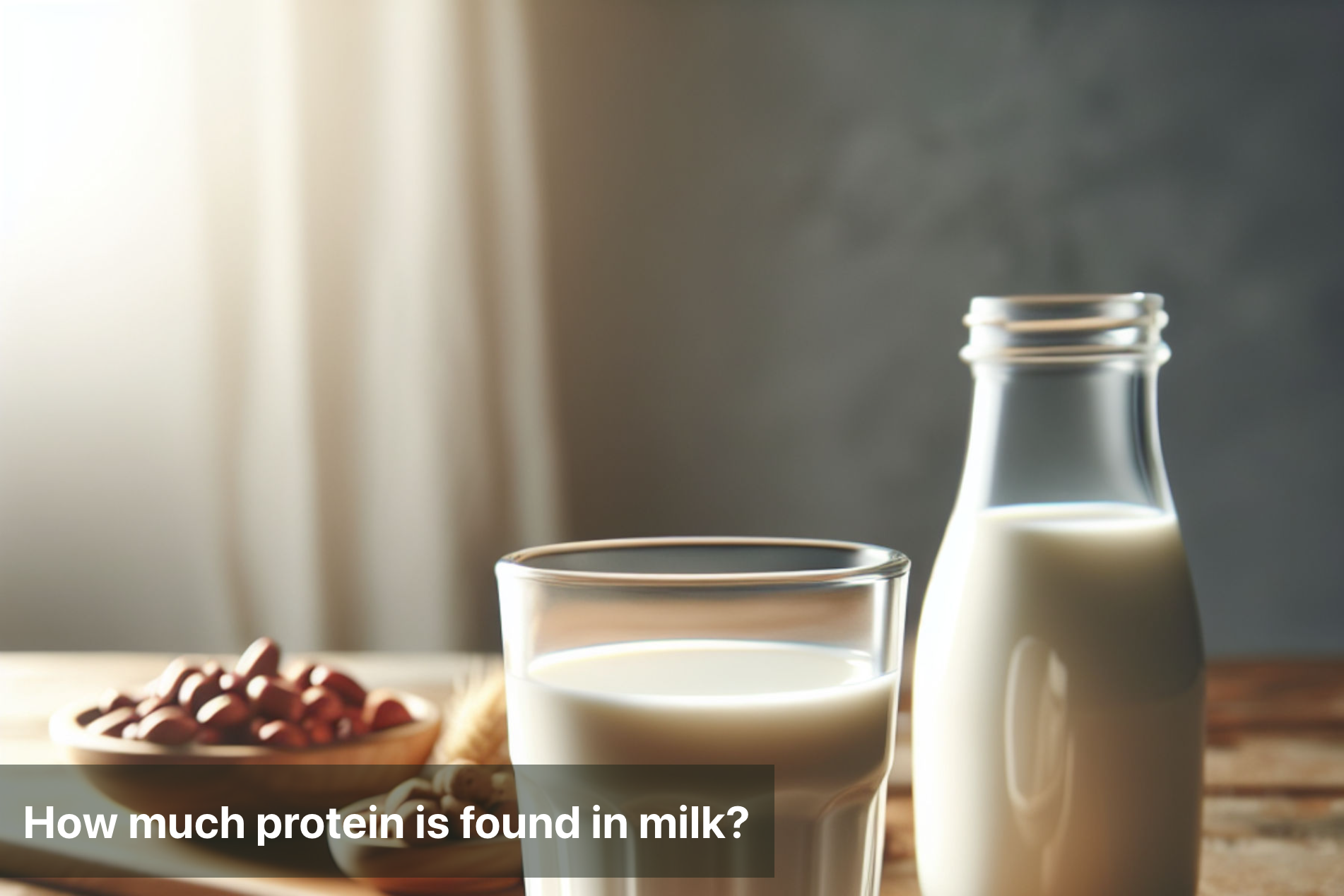
How much protein is found in milk?
Protein found in milk serves as a crucial component of our daily diet, playing a significant role in enhancing our overall health and nutrition. When we think of milk, we often associate it with calcium, but its protein content is equally vital. Milk is not only a popular beverage but also a rich source of high-quality protein that contains all essential amino acids required by our bodies.
Protein is essential for building and repairing tissues, maintaining muscle mass, and supporting various metabolic functions within the body.
Understanding the role of milk as a source of protein can lead to better dietary choices and improved nutritional intake. By incorporating milk into our daily diet, we not only benefit from its protein content but also enhance our calcium intake, promoting stronger bones and teeth.

Nutritional Composition of Milk
One cup (249 grams) of whole cow’s milk with 3.25% fat provides"
Calories |
152 |
Water |
88% |
Protein |
8.14 grams |
Carbs |
12 grams |
Sugar |
12 grams |
Fiber |
0 grams |
Fat |
8 grams |
Protein Content in Different Types of Milk
Type of Milk |
Protein Content (per 1 cup, 240 ml) |
Cow's Milk (Whole) |
8 grams |
9-10 grams |
|
Goat Milk |
8-9 grams |
Impact of Processing on Protein Content
Processing methods like pasteurization and homogenization play a crucial role in determining the protein content in milk and ultimately affect its nutritional value.
Pasteurization, a common heat-treatment process, helps in destroying harmful bacteria in milk to ensure it is safe for consumption. However, some heat-sensitive proteins may get denatured during this process, leading to a slight reduction in the overall protein content.
Homogenization, on the other hand, is the mechanical process of breaking down fat globules in milk to prevent the formation of cream layers. While homogenization does not directly impact the protein content, it can influence the digestibility and absorption of proteins in milk.
Although processing methods like pasteurization and homogenization may slightly affect the protein content in milk, they do not diminish its nutritional benefits significantly. Including processed milk in your diet can still provide a valuable source of protein for maintaining overall health and well-being.
Health Benefits of Milk
High-Quality Protein: Provides essential amino acids for muscle growth and repair.
Bone Health: Rich in calcium and vitamin D, supporting strong bones and teeth.
Improved Heart Health: Contains potassium, which helps regulate blood pressure.
Weight Management: High-protein content can promote satiety and help with weight control.
Nutrient-Rich: Contains essential vitamins and minerals like B12, riboflavin, and phosphorus.
Hydration: High water content helps keep the body hydrated.
Enhanced Muscle Function: Magnesium and calcium support muscle function and nerve transmission.
Digestive Health: Fermented milk products like yogurt contain probiotics beneficial for gut health.
Growth and Development: Essential for children’s growth and overall development.
Energy Boost: Lactose in milk provides a quick source of energy.

Protein-Rich Beverages: Exploring Your Options
Protein is crucial for muscle repair, growth, and overall body functioning, making milk an excellent choice to meet daily protein requirements. Additionally, we compared the protein content in different types of milk. Understanding these differences can help individuals make informed choices based on their dietary needs and preferences.
Moreover, we examined how processing methods like pasteurization and homogenization can influence the protein content in milk. While these processes may have some impact, milk remains a valuable source of protein and other essential nutrients.
In essence, incorporating milk into your daily diet can significantly contribute to meeting your protein needs and maintaining overall health. Remember, a balanced diet with adequate protein intake, including milk, can play a vital role in promoting optimal well-being.
FAQs
-
What is the protein content in one cup of whole milk?
One cup (8 ounces) of whole milk contains around 8 grams of protein.
-
How does the protein content vary in different types of milk?
The protein content can vary slightly among different types of milk, with whole milk having the highest protein content.
-
Is milk a good source of protein?
Yes, milk is considered a good source of protein, providing essential amino acids necessary for growth and development.
-
Can lactose intolerant individuals still benefit from the protein in milk?
Lactose intolerant individuals can opt for lactose-free or low-lactose milk options, which still contain the protein found in milk.
-
How does the protein in milk compare to other protein sources?
Milk protein is considered a high-quality and complete protein source, containing all essential amino acids required by the body.
-
Are there non-dairy alternatives that provide a similar protein content to milk?
Yes, there are several plant-based milk alternatives such as soy milk and pea milk that offer comparable protein content to dairy milk.
This Blog post is an initiative by Lo! Foods, to provide accurate and Nutritionist / Doctor approved information related to Health. Lo! Foods is India's leading brand for Everyday Functional Foods. Foods designed for specific Health conditions or Needs. Lo! Foods also runs India's largest range of Low Carb Healthy Cloud Kitchens, under the brand names of Lo!, ProteinChef, ATH (All Things Healthy) and DiabeSmart.













Leave a comment
Your email address will not be published.